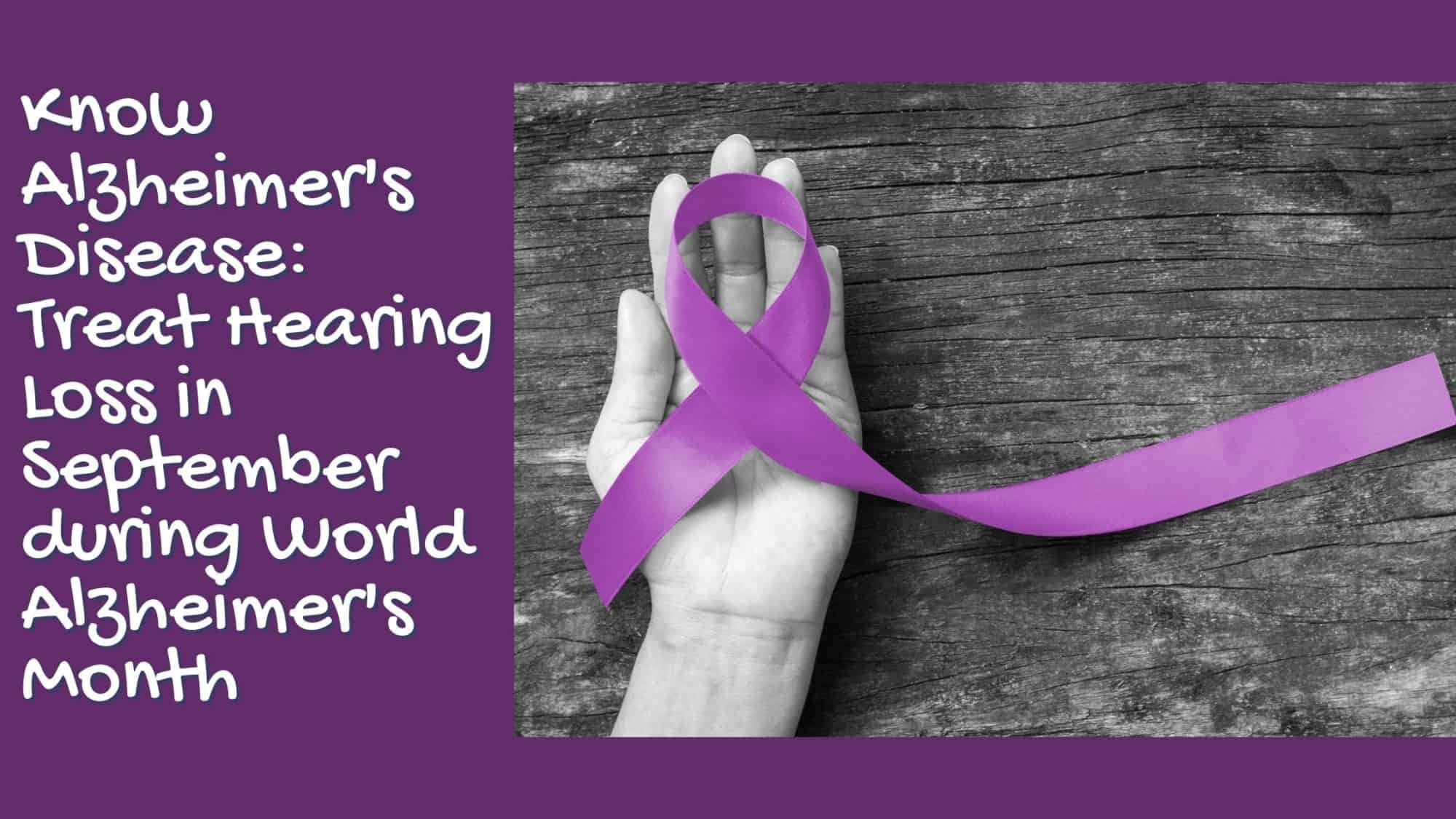- The Future of Hearing Health Research: Promising Breakthroughs - April 18, 2024
- Hearing Health in the Classroom: Strategies for Teachers and Students - April 6, 2024
- The Power of Bluetooth: A New Chapter in Hearing Aids - March 26, 2024
September is World Alzheimer’s Month. At A&A Audiology, we are committed to improving your hearing health, bringing significant benefits to your overall health and well-being. It could also help in dementia and Alzheimer’s disease prevention!
What is Alzheimer’s disease?
Alzheimer’s disease is a term for cognitive decline, and it is the most common type of dementia that people can have. Alzheimer’s is a degenerative brain disease that we typically associate with memory loss. In other words, perhaps the most common understanding of Alzheimer’s is that it negatively affects people’s memories. Those experiencing Alzheimer’s disease can find it quite difficult to remember information that they have just received or remember the names or faces of people they have just met. This kind of memory loss is related to other kinds of forgetting that people with Alzheimer’s experience.
It can sometimes be challenging to track the beginnings of Alzheimer’s because the kinds of forgetting that happens can simply look like absentmindedness. For example, in the early stages of the disease, memory loss can look like forgetting small things such as where you left your keys, where you parked in a big parking lot, or simply whether or not you turned the lights off before you left the house.
As the disease gets worse, however, the forms of memory loss can become much more severe. The memory loss can look like forgetting the names of loved ones and close friends. For example, there can be difficulty distinguishing one person from the next—calling your daughter by your sister’s name. Some people with Alzheimer’s also struggle with knowing where they are in any given space. This means they can become lost even in their own homes or generally disoriented when in tight spaces. This can become quite the problem as the disease progresses, as people with advanced stages of Alzheimer’s can do things such as leave their house and become instantly lost and wander off.
Alzheimer’s can also have troubling effects on people’s personalities. People with progressive cases of Alzheimer’s can experience sudden and vast mood swings and general feelings of irritability and overall frustration. Advanced stages of Alzheimer’s often come with extreme changes in behavior. For example, some people in the advanced stages of Alzheimer’s disease can become obsessed, suspicious, and paranoid that their family, friends, loved ones, and coworkers are out to get them.
The link between hearing loss and dementia
The above signs are often found in older people, and Alzheimer’s disease does, in fact, most frequently affect older people—The National Institute on Aging tells us that the “number of people with the disease doubles every 5 years beyond age 65.” The number of people with Alzheimer’s disease increases as we age. The National Institute on Aging further tells us that “About one-third of all people aged 85 and older may have Alzheimer’s disease.”
Even though we typically think that Alzheimer’s is a disease that only affects older people, this is not entirely the case. Early-onset Alzheimer’s disease can affect people as early as 30 years old. The Alzheimer’s Association reports that early-onset Alzheimer’s may be affecting approximately 200,000 people who are under 65 years old in the United States. No matter the age, there may be several reasons that Alzheimer’s disease presents itself. Some of these reasons are genetic and family health history. Other causes may be related to lifestyle and environmental factors.
One of the more interesting potential links between Alzheimer’s and other issues is hearing loss. Studies have shown that untreated hearing loss, in particular, is commonly related to cognitive and physical health issues. These can include issues such as anxiety to cardiovascular disease.
Links are still being connected between Alzheimer’s disease, in particular, and untreated hearing loss. A study conducted by researchers at Johns Hopkins University in 2011 tracked almost 2,000 older people around the age of 77 years old for 12 years, and some of them for 18 years. They wanted to understand how hearing loss and cognitive decline may be connected, and they found that “people with hearing loss were 24% more likely to have Alzheimer’s,” and that “the worse the hearing loss was, the more likely the person was to develop dementia.”
Is it time for a hearing test?
As we approach the fall, it is never too late to pay close attention to the hearing health habits of yourself and your loved ones. The first thing to do is schedule a hearing test. Our team can help you learn about healthy hearing habits, including using earplugs when you expect to be in loud conditions, limiting your use of in-ear headphones, and covering your ears when exposed to sudden exposure to loud sounds. Treating your hearing loss brings significant physical and mental health to your life. Contact us to get started today!

